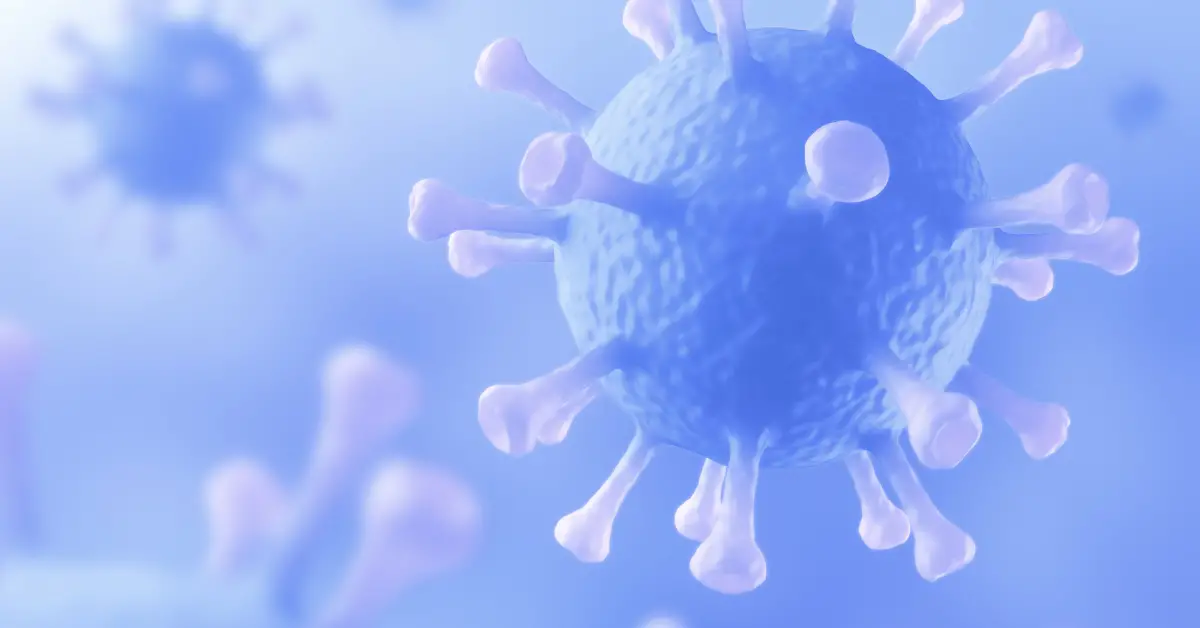Infectious diseases are caused by microorganisms such as viruses, bacteria, fungi, or parasites and can spread between individuals. Billions of people will contract an infectious disease; this could be as simple as the common cold, which is usually just a nuisance, to something more serious such as the HIV/AIDS virus.
According to records from the National Center for Health Statistics (part of the CDC) and the National Foundation of Infectious Diseases:
- 2,700 new cases of hepatitis A occurred in the U.S. in 2011.
- In the U.S., it is estimated that 700,000 to 1.4 million people have chronic hepatitis B infections.
- In the U.S., between 2.5 and 3.9 million people have chronic hepatitis C infections.
- Tuberculosis has infected one-third of the world’s population.
- 36,000 people per year in the U.S. die from influenza and pneumonia.
- 50,000 new cases of HIV infections occur annually in the U.S., and nearly 33 million people are infected with HIV in the world.
What Is An Infectious Disease?
An infectious disease is specifically an illness that is caused by a microbe (organisms too small to be seen with the naked eye). Bacteria, viruses, fungi, and protozoa are all disease-causing microbes.
Contact with some germs is actually a good thing because it helps strengthen your immune system, which is your personal arsenal that protects you from illness. Germs are found in every corner of your environment, which makes personal hygiene just as important as keeping areas consistently clean to maintain proper health.
Microorganisms that cause disease are called pathogens. Pathogens cause disease by disrupting the normal processes in the body and stimulating the immune system to produce a defensive response, such as high fever, inflammation, and other symptoms.
Symptoms Of Infectious Diseases
Signs and symptoms vary greatly for each infectious disease. For example, chickenpox comes with specific rashes and blisters, strep throat involves a sore throat, dengue fever causes joint pain and pain behind the eyes, and hepatitis may be accompanied by yellowish skin.
General signs of most infectious diseases include:
- Fever
- Fatigue
- Muscle pains
- Coughing
- Diarrhea
When To See A Doctor
If you develop signs of an infectious disease or you believe that you are at risk, seek medical attention. Visit your doctor if you are experiencing:
- Prolonged or unexplained fever
- Severe headache with a fever
- Trouble breathing
- Rashes or swelling
- Coughing for over a week
- Sudden problems with your vision
- Have been bitten by an animal
What Causes An Infectious Disease?
- Bacteria: Bacteria is a unicellular microorganism. Infectious diseases caused by bacteria include urinary tract infections, strep throat, and tuberculosis.
- Viruses: Viruses are tiny infective agents that reproduce inside living cells. Infectious diseases caused by viruses include the flu, the common cold, and AIDS.
- Fungi: Fungi are living organisms that can cause disease in various parts of the body. Infectious diseases caused by fungi include athlete’s foot, ringworm, yeast infections, and infections in the lungs or nervous system.
- Parasites: Parasites live and feed on other organisms. Infectious diseases that are caused by parasites include malaria, giardiasis, and toxoplasmosis. Some are spread by mosquito bites (eg. malaria), while others can be transmitted from animal feces (eg. toxoplasmosis).
- Protozoa: These are small parasites that live in the water and live off of other organisms, such as humans.
Here are some of the most common types of infectious diseases:
- Influenza (the flu): More severe than a cold, influenza includes symptoms such as fever, body aches, extreme tiredness, and dry cough. It is spread in respiratory droplets when an infected person coughs or sneezes.
- MRSA (Methicillin-resistant Staphylococcus aureus): Healthcare staph infections include surgical wound infections, urinary tract infections, bloodstream infections, and pneumonia.
- Norovirus: Common symptoms of norovirus are diarrhea, vomiting, and stomach pain.
- Bloodborne pathogens: These are viruses carried by the blood, including hepatitis and HIV/AIDS.
Diagnosis And Treatment
Diagnosis usually involves lab tests, such as blood and urine tests, throat swabs, stool samples, and spinal taps. In some cases, imaging (eg. x-rays) and biopsies are involved as well.
Treatment may involve antibiotics, antivirals, antifungals, antiparasitics, and natural remedies, such as rest, drinking more water, herbs, vitamins, minerals, superfoods, and teas.
How Are Infectious Diseases Spread?
- Direct Contact: Some diseases, like the flu or strep throat, can spread from person to person through coughs, sneezes, touch, and kisses. Sexually transmitted diseases pass through the exchange of body fluid through sexual contact, sometimes even when symptoms are not present. Other infections, such as rabies, may be spread to a person by the scratch or bite of an infected animal. Others, such as toxoplasmosis, may be spread through animal feces. Certain diseases, including STDs, can be passed from the mother to her unborn child through the placenta or during childbirth through the vagina.
- Indirect Contact: Since germs hang around everywhere from tabletops to doorknobs, from faucet handles to office supplies, some infectious diseases such as colds and the flu can be caught through indirect contact.
- Insect Bites: Many infectious diseases spread through the bite of animals (mosquitos, fleas, lice, and ticks) that carry the infection. Certain mosquitoes carry the West Nile virus, dengue virus, and malaria parasite. Some ticks carry the Lyme disease-causing bacterium.
- Food Contamination: Certain infectious diseases, such as E. coli, spread through contaminated food or water.
Am I At Risk Of An Infectious Disease?
Nobody is completely protected from infectious diseases, but some people with a compromised immune system are at more risk. Your risk is higher of an infectious disease if:
- You have HIV or AIDS
- You are taking steroids or other immune system-suppressing medications, such as anti-rejection drugs for organ transplant
- You have a certain type of cancer, such as leukemia or lymphoma that affects your immune system
- You have a certain type of disorders, such as lupus or IBD that affect your immune system
- You have certain other conditions, such as malnutrition, prolonged medication, and implanted medical devices that make you more vulnerable to infections
Complications Of Infectious Diseases
Most infectious diseases resolve with minimal or no complications. Some infectious diseases, such as meningitis, pneumonia, and AIDS, can turn into life-threatening conditions and can potentially lead to death. Other infectious diseases increase your risk for specific cancers. For example, Hepatitis B and C can lead to liver cancer and HPV has been linked to cervical cancer. Other infectious diseases may reappear after decades of silence, such as chickenpox, which can reappear as shingles later in life.
Preventing Infectious Diseases
Since infectious diseases can enter your body through various ways, such as skin contact, ingestion, inhalation, bites, injuries, and sexual contact, it is important to think about your entire body to prevent infections.
- Wash Your Hands. Wash your hands often throughout the day, especially after using the restroom, before eating, and before and after preparing and handling food. If you cannot wash your hands, you can use hand sanitizer instead. Avoid touching your mouth, eyes, and nose.
- Get Vaccinated. Immunization can drastically lower your chances of certain infectious diseases, such as chicken pox, mumps, and whooping cough. Talk to your doctor to learn about recommended vaccines. Make sure to keep up-to-date on your vaccinations as well as your children’s vaccinations.
- Stay Home. When you are sick with a fever, vomiting, diarrhea, and serious respiratory conditions, stay home from work and keep your children home from school to avoid infecting others.
- Eat Safe Food. Prepare your food safely. Keep your kitchen clean, wash your food, and cook at proper temperatures. Do not leave your food out too long, especially when the air temperature is hot. Refrigerate your leftover food as soon as possible. When eating out, make sure the place is clean and your food seems well-cooked.
- Protect Yourself From Bug Bites. Use bug sprays and repellents (yes, the natural varieties are great too!), and wear long sleeves, long pants, and closed shoes when wandering out into nature. Always check for ticks when coming home.
- Practice Safe Sex. Use condoms, get tested for STDs regularly, and avoid high-risk behavior.
- Travel Smart. When traveling outside of the country, travel vaccinations, such as cholera, hepatitis A or B, typhoid fever, and yellow fever, are important. Talk to your doctor to find out what vaccinations are recommended for your trip. Depending on your destination, washing your hands more carefully, avoiding tap water, and being more careful with food may also be important.
- Personalize Items. Use your own toothbrush, comb, and razor. Avoid sharing drinking glasses and utensils.
Conclusion
While infectious diseases are prominent in all areas of our society, prevention is the key to protecting yourself and your family from becoming ill. Many infectious diseases can be prevented simply by getting vaccinated, such as measles and chickenpox. Proper, thorough hand-washing is the easiest way to protect yourself from most infectious diseases. So always remember to wash your hands.











 Subscribe to Ask Dr. Nandi YouTube Channel
Subscribe to Ask Dr. Nandi YouTube Channel









